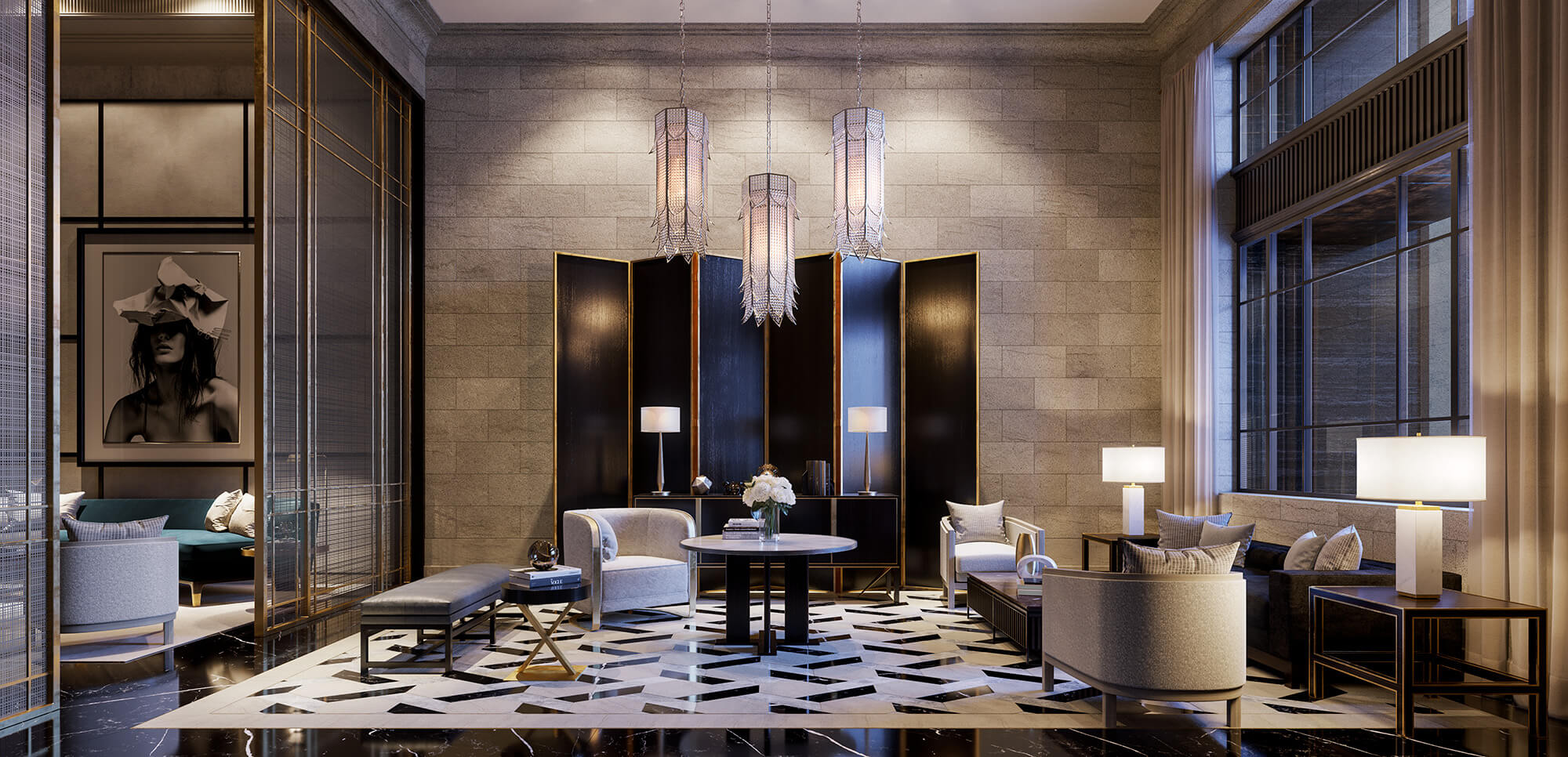Emotion By Design
“Good architecture will touch emotion first,” observes Wengle. “It could be subliminal, but someone can look at something and it will create a feeling of excitement, curiosity, warmth and, almost, sometimes, exuberance because it might remind you of something, and that plays on your emotions. The wonder of space and light is incredible, but it is also tied to experiences and an emotional attachment to things in order to appreciate them. Part of being an architect is the appreciation for the built form.”
Richard Wengle Architects is designing projects in some of Toronto’s most desirable neighbourhoods, including the exclusive midtown enclaves of Forest Hill and Yorkville, where construction has started on 89 Avenue Road by Armour Heights Developments, a 20-storey are a lot of beautiful buildings, and we’re sort of leaving Toronto in a better place than we found it, hopefully. The goal with each project is that we want to raise the bar and bring ideas that we have to our new projects.”Architects notice things the rest of us do not, and as an avid word traveller who lived in Venice for six months as a student, Wengle receives much of his inspiration from historical sites and buildings.
He began to build his reputation with custom designed single-family luxury homes and he has kept his Toronto-based Richard Wengle Architects Inc. intentionally small, with a staff of fewer than 20 professional designers and architects, so he could meet all his clients and get to know their dreams and aspirations for their homes.
“I’m involved with every project from the beginning, so it is our vision and it’s consistent,” says Wengle in explaining his firm’s process. “For me, it’s all about connecting with our clients and maintaining a relationship with them, and after the project is completed, we remain friends. Some clients know exactly what they want, while others depend upon us to guide them. We have a broad range of architectural styles on purpose, and it’s nice to be able to speak in many dialects of the architectural language.”
Just over a decade ago, developers of luxury boutique condominiums in the Greater Toronto Area began to notice what Wengle was doing, his many different styles, his thoughtfulness in design of the highest calling and, perhaps most importantly, in a vertical city of glass-box towers, how his projects met the streetscape. We care most about architecture where we interact with it, and, for most of us, that is at street level. Do we really care that a building may soar 40, 50 or 60 storeys above us? Probably not. But we do care about architecture when we can see it right in front of us, as impactful design is a major part of the look and feel of our community surroundings. Developers tell us they see in our designs our abilities to really relate to the streetscape, have a lot more character and more of an everlasting presence in order to bring their buildings to the next level.”
“The 89 Avenue Road condominium is pre-war Style.” What is really great about living in Toronto is, we’re not locked into one particular esthetic here,” he observes. “We have so many different architectural styles open to us, more than probably any city in North America. In Toronto, there is a huge array of modernism, contemporary and traditional work, and even within the traditional, there are many variations on this theme. It is truly really an incredible city and it is one of the best cities to be in. And I am proud to be able to contribute to it.”
Source: Dolce Magazine

